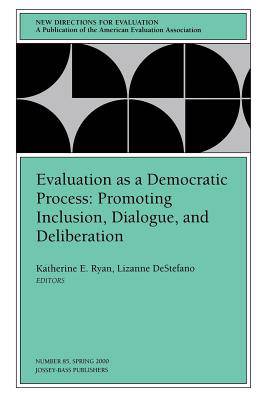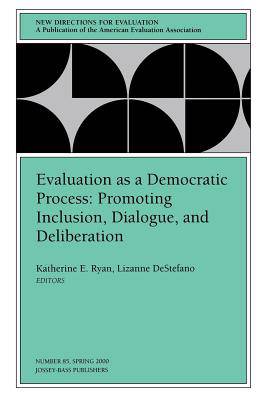
Je cadeautjes zeker op tijd in huis hebben voor de feestdagen? Kom langs in onze winkels en vind het perfecte geschenk!
- Afhalen na 1 uur in een winkel met voorraad
- Gratis thuislevering in België vanaf € 30
- Ruim aanbod met 7 miljoen producten
Je cadeautjes zeker op tijd in huis hebben voor de feestdagen? Kom langs in onze winkels en vind het perfecte geschenk!
- Afhalen na 1 uur in een winkel met voorraad
- Gratis thuislevering in België vanaf € 30
- Ruim aanbod met 7 miljoen producten
Zoeken
Evaluation as a Democratic Process: Promoting Inclusion, Dialogue, and Deliberation
New Directions for Evaluation, Number 85
EV (Evaluation)
€ 30,95
+ 61 punten
Omschrijving
Shows how to use different types of dialog to make evaluation more participatory. This book examines an evaluation program in a psychiatric institution to explore the challenge of employing participatory, democratic approaches in an anti-democratic environment.
Specificaties
Betrokkenen
- Auteur(s):
- Uitgeverij:
Inhoud
- Aantal bladzijden:
- 112
- Reeks:
Eigenschappen
- Productcode (EAN):
- 9780787953713
- Verschijningsdatum:
- 12/04/2000
- Uitvoering:
- Paperback
- Afmetingen:
- 156 mm x 228 mm
- Gewicht:
- 156 g

Alleen bij Standaard Boekhandel
+ 61 punten op je klantenkaart van Standaard Boekhandel
Beoordelingen
We publiceren alleen reviews die voldoen aan de voorwaarden voor reviews. Bekijk onze voorwaarden voor reviews.









